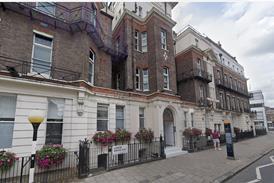The courts have made clear they will be prepared to apply fixed costs to cases which have long since breached the £25,000 limit. Two judgments that have emerged over the past week show examples of judges considering fixed recoverable costs where the personal injury claims had exited the pre-action protocol.
Fixed costs apply to claims starting in the protocol that have an expected upper limit of £25,000 damages. But section IIIA of the Civil Procedure Rules 45 provides that claims which grow in value and leave the protocol are still subject to fixed costs, save in exceptional circumstances.
The landmark decision in Qadar & Ors v Esure Services Limited made clear fixed costs could continue to apply to pre-allocation settlements over £25,000. Now two further judgments have given further clarity for lawyers.
In Ferri v Gill, the injured claimant settled his case for £42,000, the claim having started (under different lawyers) under the low-value protocol. Master McCloud had ruled the claimant’s costs should be subject to detailed assessment.
The Master said the value was considerably outside the boundaries for applying fixed costs and she was setting a ‘low bar’ because the portal was intended to deal with simple cases which would typically be fast track.
On appeal, Mr Justice Stewart said the Master had erred in law on the construction of exceptionality. The judge added: ‘The authorities already cited make clear the policy reasons behind this fixed costs regime in particular, and other similar fixed costs regimes. Exceptionality should not be a low bar.’ The matter was remitted for consideration by a different Master.
In Lovatt v Lew Diescastings Limited, the claimant accepted the defendant’s Part 36 offer of £29,000 for an accident at work. The claim had fallen out of the employer’s liability protocol because the defendant did not admit liability. Sitting in the County Court at Manchester, His Honour Judge Sephton QC said the district judge on first instance had been wrong to apply old costs rules.
‘The purpose of the revision to the rules was not to impose unfairness upon claimants but to make it clear, first of all, to all concerned what the consequences were likely to be if a claim was started under the protocol but which ended up being worth more than £25,000,’ HHJ Sephton said.



























17 Readers' comments